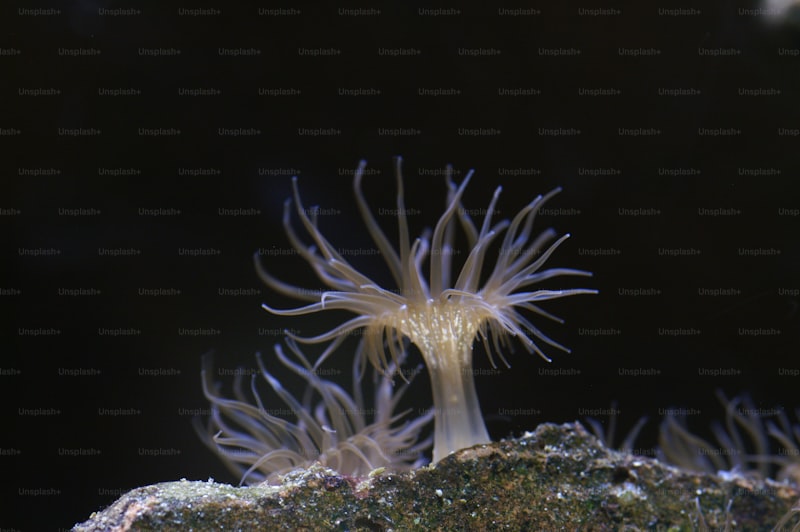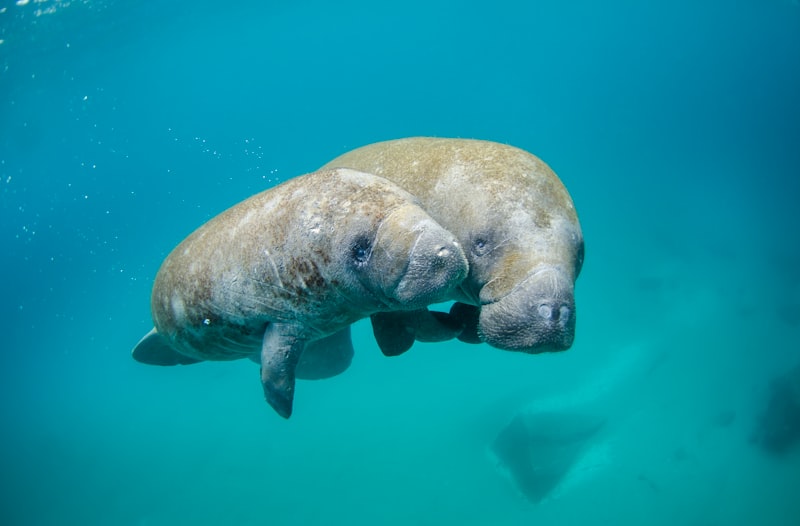Have you ever wondered about the hidden champions of our oceans? While whales, corals, and fish often steal the spotlight, there’s a lesser-known yet crucial player beneath the waves: marine fungi. These tiny organisms may not catch the eye like dolphins do, but they play a vital role in maintaining the health and balance of oceanic ecosystems.
Marine fungi are like the recyclers of the sea. They break down organic matter, such as dead plants and animals, into simpler compounds that other organisms can use. Think of them as the ocean’s composters, turning waste into nutrients that fuel the entire food web. Without these fungal decomposers, our oceans would be clogged with decaying matter, unable to sustain the rich diversity of life we know today.
But that’s not all—marine fungi also form crucial partnerships with other marine organisms. They engage in mutually beneficial relationships with algae, sponges, and even corals. In return for shelter and nutrients, the fungi help their hosts absorb essential minerals and resist harmful pathogens. It’s a classic case of teamwork in the deep blue.

Interestingly, marine fungi have adapted to thrive in some of the harshest environments on Earth. They can withstand extreme pressures, temperatures, and salinity levels that would spell doom for many other organisms. These adaptations not only make them resilient survivors but also key players in maintaining ecosystem stability in challenging conditions.
Scientists are continually uncovering new roles that marine fungi play in oceanic ecosystems. From producing bioactive compounds with potential pharmaceutical applications to influencing climate patterns by releasing aerosols into the atmosphere, their impact extends far beyond the seabed.
Next time you dip your toes into the ocean or enjoy seafood by the shore, take a moment to appreciate the unsung heroes beneath the waves—the marine fungi. They may be small, but their contributions are immense, ensuring our oceans remain vibrant and teeming with life.
Marine Fungi: The Unsung Heroes of Oceanic Ecosystems
Imagine marine fungi as nature’s recyclers, breaking down organic matter like dead plants and animals that sink to the ocean floor. They act as the cleaners of the seas, ensuring that nutrients are cycled back into the ecosystem, supporting the growth of other marine organisms. Without them, the ocean’s delicate balance would be disrupted, leading to potential ecological imbalances.
One of the most fascinating aspects of marine fungi is their ability to adapt to extreme conditions. They survive in high-pressure environments and can withstand fluctuations in temperature and salinity that would be challenging for many other organisms. This resilience makes them key players in maintaining biodiversity in the oceans.
In addition to their ecological roles, marine fungi also hold promise for scientific and medical research. Scientists are exploring their potential for producing novel antibiotics and other pharmaceuticals that could combat human diseases. The compounds they produce have unique chemical structures that make them valuable in biotechnology and drug discovery.
Metaphorically speaking, marine fungi are like the silent guardians of the ocean depths, quietly performing their essential tasks without much fanfare. Their presence underscores the interconnectedness of all marine life, highlighting how every organism, no matter how small, contributes to the larger tapestry of oceanic ecosystems.
How Marine Fungi Influence Marine Biodiversity and Health
One of the key ways marine fungi impact biodiversity is through their symbiotic relationships with other marine organisms. They form partnerships with various marine species, including algae, sponges, and corals, providing essential nutrients and aiding in their growth and survival. This symbiosis not only enhances the health of these organisms but also fosters biodiversity by creating ecological niches that support a wide array of marine life.
Moreover, marine fungi are adept at breaking down organic matter, such as wood and plant debris that falls into the ocean. This decomposition process is vital for nutrient cycling within marine ecosystems, releasing essential elements like carbon and nitrogen back into the environment. By facilitating nutrient recycling, marine fungi ensure that these elements are available for the growth of other marine organisms, thus sustaining biodiversity.
In addition to their ecological roles, marine fungi possess unique biochemical properties that have attracted attention for potential pharmaceutical and biotechnological applications. Scientists are exploring these fungi for their ability to produce bioactive compounds with medicinal properties, including antibiotics, anticancer agents, and antioxidants. Such discoveries not only highlight their importance in biodiversity but also their potential to contribute to human health and well-being.
The influence of marine fungi on marine biodiversity and health is profound and multifaceted. From symbiotic relationships that support ecosystem diversity to biochemical innovations with therapeutic potential, these organisms exemplify nature’s ability to innovate and sustain life in the world’s oceans. Understanding and preserving their role in marine ecosystems is crucial for maintaining ocean health and the well-being of future generations.
Exploring the Hidden Role of Marine Fungi in Oceanic Food Chains
One of the key roles of marine fungi lies in their ability to break down complex organic matter. They act as decomposers, breaking down dead organisms and organic debris that sink to the ocean floor. This process releases essential nutrients such as nitrogen and phosphorus back into the water, which are then recycled and used by other marine organisms. In essence, marine fungi facilitate the recycling of nutrients, making them available for the growth and sustenance of marine life across various trophic levels.
Moreover, marine fungi also form symbiotic relationships with other marine organisms, including algae and corals. These symbioses are often mutually beneficial, where the fungi provide nutrients or protective compounds to their hosts in exchange for a stable environment or a source of organic matter. Such relationships are crucial for the health and resilience of marine ecosystems, particularly in nutrient-poor environments where every nutrient exchange is vital for survival.
In recent years, scientists have begun to uncover the diversity and importance of marine fungi in oceanic ecosystems. Research efforts have revealed new species and novel interactions that further highlight the intricate web of life beneath the ocean’s surface. Understanding the roles of marine fungi not only enhances our knowledge of marine biodiversity but also underscores their significance in global biogeochemical cycles.

As we continue to explore the depths of our oceans, the role of marine fungi remains a captivating area of research. Their ability to recycle nutrients, form symbiotic partnerships, and contribute to the resilience of marine ecosystems underscores their importance in maintaining the delicate balance of oceanic food chains.
Marine Fungi and Their Impact on Ocean Nutrient Cycling
Imagine the ocean as a bustling metropolis where marine fungi act as the diligent recyclers. They break down complex organic compounds from dead plants, animals, and other debris that sink to the ocean floor. This decomposition process, facilitated by enzymes secreted by fungi, releases nutrients back into the water column, where they become available to support marine life at various trophic levels.
One of the most fascinating aspects of marine fungi is their ability to thrive in extreme environments. From the frigid waters of the Arctic to the sunlit shallows of tropical seas, these resilient organisms adapt and flourish. Their adaptability allows them to colonize surfaces such as submerged rocks, mangrove roots, and even the bodies of marine animals, forming intricate ecosystems within ecosystems.
In addition to nutrient recycling, marine fungi contribute to the overall health and stability of coral reefs and other marine habitats. They form symbiotic relationships with corals and other organisms, providing essential nutrients and aiding in disease resistance. This mutualistic interaction highlights their role not only as decomposers but also as ecosystem engineers, shaping the biodiversity and resilience of marine communities.
Understanding the impact of marine fungi on nutrient cycling is crucial for marine conservation efforts. By studying their ecological roles and interactions, scientists can better predict and mitigate the effects of environmental changes, such as ocean warming and acidification, on marine ecosystems worldwide. As research continues to unveil the hidden complexities of marine fungi, their significance in sustaining ocean health becomes increasingly evident.
Frequently Asked Questions
How do marine fungi contribute to nutrient cycling in the ocean?
Learn how marine fungi play a crucial role in ocean ecosystems by contributing to nutrient cycling. Explore their unique ability to decompose organic matter, releasing essential nutrients back into the water, thereby supporting the marine food web and ecosystem health.
How are marine fungi being studied and why are they important for ocean conservation?
Discover how marine fungi are studied and their crucial role in ocean conservation efforts. Learn about ongoing research initiatives focusing on their biodiversity, ecological impact, and potential applications in sustainable marine resource management.
Can marine fungi affect the health of coral reefs and other marine organisms?
Marine fungi can indeed affect the health of coral reefs and other marine organisms. They can contribute to coral disease outbreaks and impact the overall ecosystem by altering nutrient cycles and competing with native species for resources. Understanding their role is crucial for assessing and managing marine biodiversity and ecosystem health.
What roles do marine fungi play in the decomposition of organic matter in the sea?
Discover the essential roles marine fungi play in breaking down organic matter in the ocean. Learn how these fungi contribute to nutrient cycling and ecosystem health through their decomposition activities, crucial for marine environments.
What are marine fungi and where are they found in oceanic ecosystems?
Discover marine fungi, organisms found in oceanic ecosystems. They thrive in diverse habitats such as coral reefs, deep-sea vents, and coastal waters, playing crucial roles in nutrient recycling and ecological balance.


